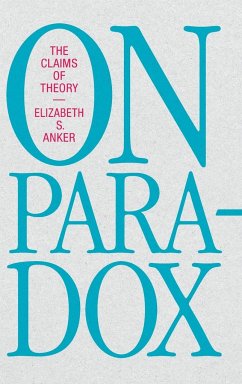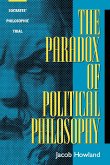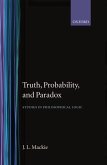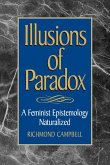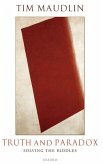In On Paradox literary and legal scholar Elizabeth S. Anker contends that faith in the logic of paradox has been the cornerstone of left intellectualism since the second half of the twentieth century. She attributes the ubiquity of paradox in the humanities to its appeal as an incisive tool for exposing and dismantling hierarchies. Tracing the ascent of paradox in theories of modernity, in rights discourse, in the history of literary criticism and the linguistic turn, and in the transformation of the liberal arts in higher education, Anker suggests that paradox not only generates the very exclusions it critiques but also creates a disempowering haze of indecision. She shows that reasoning through paradox has become deeply problematic: it engrains a startling homogeneity of thought while undercutting the commitment to social justice that remains a guiding imperative of theory. Rather than calling for a wholesale abandonment of such reasoning, Anker argues for an expanded, diversified theory toolkit that can help theorists escape the seductions and traps of paradox.
Hinweis: Dieser Artikel kann nur an eine deutsche Lieferadresse ausgeliefert werden.
Hinweis: Dieser Artikel kann nur an eine deutsche Lieferadresse ausgeliefert werden.

